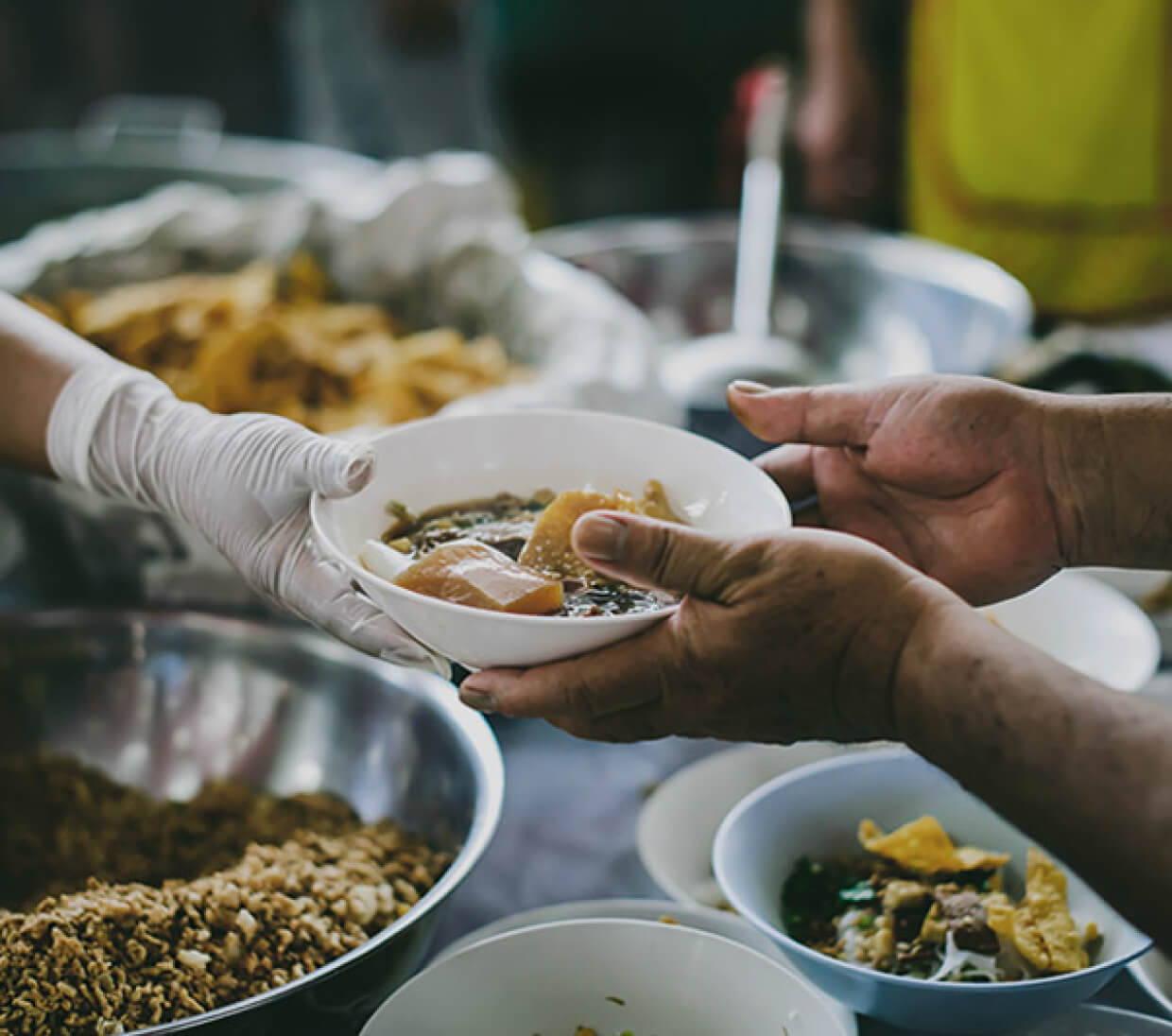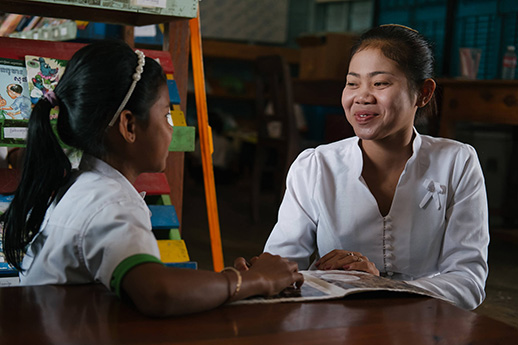The Reform of Intercultural Generosity
We, as leaders representing internationally connected nonprofits, mission agencies and churches, believe that it is time to radically transform cross-cultural charity and mission.
Intercultural relationships can heal the world. Effective generosity, the type that liberates and builds capacity, is needed. But the current approaches are falling far short of their potential to do good — and sometimes they cause harm.
Despite decades of progress against poverty, the world remains grievously fractured: Some children surf TikTok while others die from dirty water. Hundreds of millions of people in abject poverty struggle to survive – unable to meet basic needs. Poverty statistics are too familiar.
- 1 in 10 people in the world 1 live in extreme poverty and make less than $1.90 per day.
- One out of five children live in extreme poverty, and the negative effects of poverty and deprivation in the early years have ramifications that can last a lifetime. 2
- More than 700 million people, or 10 percent of the world’s population, still live in extreme poverty today, struggling to fulfill the most basic needs like health, education, and access to water and sanitation. 3
- One in every three global human trafficking victims is a child. 4
- Globally, up to 1 billion children ages 2-17 have experienced physical, sexual, or emotional violence or neglect in the past year. 5
- In 2020 there were an estimated 241 million cases of malaria worldwide and 627,000 estimated deaths. 6
- 785 million people lack even a basic drinking-water service, including 144 million people who are dependent on surface water.7
- An estimated 1.8 billion people do not have quality essential health services. A large proportion of preventable maternal, childhood, and neonatal deaths occur in these settings.8
- Despite the steady rise in literacy rates over the past 50 years, there are still 773 million illiterate adults around the world, most of whom are women.9
- 100 million youth around the world lack basic literacy skills.10
- There are an estimated 40.3 million victims of human trafficking globally. 81% of them are trapped in forced labor, 75% are women and girls, and 1 in 4 victims of human trafficking are children.11
- 71% of trafficking victims around the world are women and girls, and 29% are men and boys.12
- 2.37 billion people face moderate or severe food insecurity. Half are in Asia, one-third are in Africa, and 11 percent are in Latin America and the Caribbean.13
- Between 720 and 811 million people in the world face hunger.14
- Nearly one in three people in the world did not have access to adequate food in 2020 – that’s an increase of almost 320 million people in just one year.15
1Source: World Bank: https://www.worldbank.org/en/publication/poverty-and-shared-prosperity
2Source: https://www.un.org/sustainabledevelopment/poverty/
3Source: Goal 1: End Poverty in All Its Forms Everywhere — United Nations Sustainable Development.” United Nations Sustainable Development, https://www.un.org/sustainabledevelopment/poverty/
4Source: Chapter 3, https://www.unodc.org/documents/data-and-analysis/tip/2021/GLOTiP_2020_15jan_web.pdf
5Source: https://www.who.int/news-room/fact-sheets/detail/violence-against-children
6Source: https://www.who.int/news-room/fact-sheets/detail/malaria
7Source: https://www.who.int/news-room/fact-sheets/detail/drinking-water
8Source: https://www.who.int/news-room/fact-sheets/detail/quality-health-services
9Source: http://uis.unesco.org/en/topic/literacy
10Source: https://en.unesco.org/sites/default/files/ild-2021-fact-sheet.pdf
11https://www.ilo.org/global/publications/books/WCMS_575479/lang--en/index.htm
12Source: ILO
13Source: https://www.fao.org/3/cb4474en/online/cb4474en.html#chapter-2_1
14Source: https://www.un.org/en/global-issues/food
15Source: https://www.un.org/en/global-issues/food

Everyone is aware, but so few take effective action. Tens of millions of people from wealthier countries have traveled cross-culturally for humanitarian or missional purposes. Three-quarters of them claim that those experiences were “life-changing.” People give, but what is the result?
Cross-border generosity results in $68 billion per year (excluding U.S. government aid (ODA), remittances and private investments) and is operationalized by thousands of nonprofit organizations. Child sponsorship connects millions of donors with millions of children, mobilizing $3.5-5 billion per year.
¹Global Philanthropy Environment Index. https://globalindices.iupui.edu/tracker/themes/index.html

Sadly, cross-cultural charity and mission have a checkered past. Cultural imperialism often hides in the guise of mission, foisting ideologies of the economically dominant culture upon vulnerable people. Work to help “the poor” is riddled with unintended consequences, and often undermines the dignity and initiative of the people it aims to serve. Cross-cultural travel is sometimes marked by hero narratives instead of humility. Government foreign aid is derailed by corruption, and international nonprofits struggle with inefficiency. But these criticisms are not new.
Generous and good people have been sufficiently chastised for their “toxic charity,” and the well-intended have been warned that their helping sometimes hurts. The critiques of cross-cultural generosity are necessary, but so are solutions. It is not enough to lambast mission trips as poverty tourism and point the wagging finger of expertise at the “amateurs without borders.” It is time for solutions.
Despite the choppy history, we affirm the beauty of intercultural relationships and their power to change lives. Although charity may become toxic, it is still a virtue when done well. Helping people in need is a central commitment of Christian faith.
If our love for the vulnerable is sincere, if we want to see the marginalized gain access, or those struggling in extreme poverty uplifted, then we must be driven by the question,

Vulnerable and economically poor people need the leaders of nonprofit and missional organizations to be innovators. Leaders with system-disrupting courage. Leaders who are willing to reinvent their organizations and transfer power to the communities they exist to serve.
True empowerment, not just rhetoric but self-sacrificing action, trusts others with key decisions. Most international development or mission organizations evolved into layers of structure, system and process to operate as go-betweens, as bridges connecting a world of donors to a world of need. But the old bridges are decaying, heavy with cost and crumbling at their philosophical foundations. The world today presents new possibilities for light, clean, agile and localized bridges.
We affirm...
We commit to radically uphold the dignity of people in low-income communities. We reject ideologies that present “the poor” as objects of benevolence. Instead, we empower work that puts people at the center of their own growth and development.
We facilitate relationships to change lives and connect communities to promote intercultural solidarity.
Featured organizations must listen systematically to those they claim to serve, capturing insights and feedback for continuous improvement.
We rally support toward locally initiated work because local ownership is the key to sustainability and local solutions are best to solve local challenges.
We require transparency as it creates both trust and accountability. No hype, no spin, no hero narratives.
We connect front-line groups, eliminating archaic institutional structures, to gain efficiency and therefore impact.
We support
those who are...
the power of mutually transformative and healthy intercultural relationships
local-to-local connected communities built on trust and transparency
a world full of good people to achieve their various missions for uplifting the vulnerable
the end of extreme poverty alongside countless local leaders
